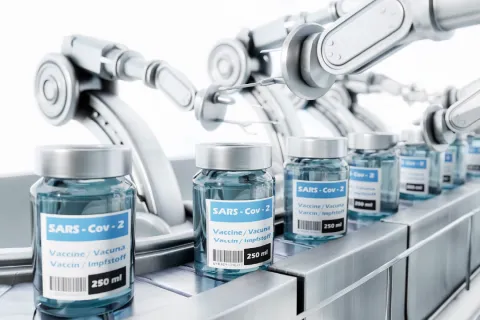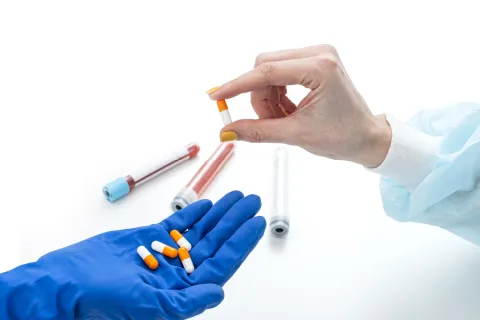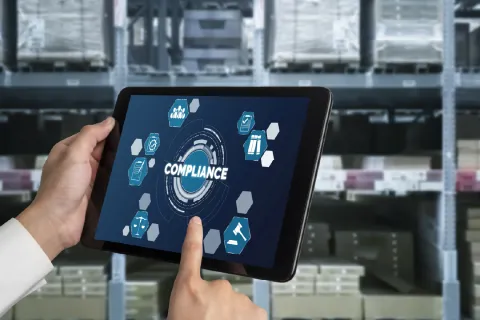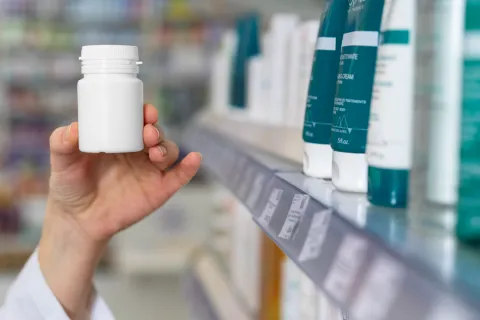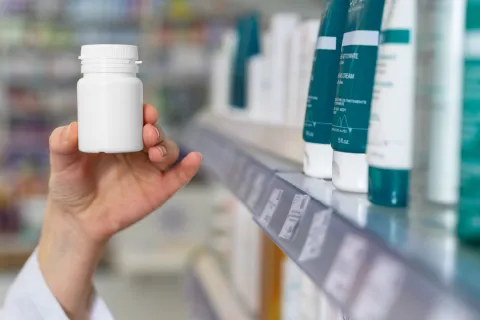
In recent years, the pharmaceutical industry has witnessed a significant transformation with smart labels in packaging. Smart labels, also known as electronic or intelligent labels, are equipped with advanced technologies that enable them to store and transmit data, providing a wide range of benefits for pharmaceutical companies and consumers. This innovative approach to packaging has the potential to revolutionize how medications are tracked, monitored, and consumed.
Explore Our Smart Labeling Solutions
Request a Consultation
Here are a few notable benefits of smart labels:
- Enhancing Traceability and Authentication
Smart labels, equipped with technologies such as Radio-Frequency Identification (RFID) and Near Field Communication (NFC), play a crucial role in improving traceability throughout the pharmaceutical supply chain. Each product can be assigned a unique identifier, allowing for real-time tracking from manufacturing facilities to distribution centers and ultimately to pharmacies. This not only reduces the risk of counterfeit drugs entering the market but also enables quick and efficient recalls if necessary.
- Ensuring Product Authenticity and Safety
Counterfeit drugs pose a significant threat to public health, and combating this issue has become a top priority for the pharmaceutical industry. Smart labels provide an effective solution by enabling consumers and healthcare professionals to verify the authenticity of a product through their smartphones. By simply scanning the label, they can access detailed information about the medication, including its origin, expiration date, and batch number. This transparency instills confidence in the authenticity and safety of pharmaceutical products.
- Real-time Monitoring of Temperature and Conditions
Many pharmaceutical products are sensitive to environmental factors such as temperature. Smart labels equipped with sensors can monitor and record temperature conditions throughout the supply chain. This real-time data ensures that medications are stored and transported within the recommended temperature range, preserving their efficacy. This feature is especially critical for biopharmaceuticals, vaccines, and other temperature-sensitive drugs.
- Improving Patient Adherence and Engagement
Smart labels also benefit patients directly by enhancing medication adherence and engagement. Through interactive features, patients can receive reminders to take their medication, access dosage instructions, and receive educational content about their treatment. This not only improves patient outcomes but also fosters a stronger connection between healthcare providers and patients.
- Streamlining Regulatory Compliance
The pharmaceutical industry is subject to stringent Regulatory requirements to ensure the safety and efficacy of medications. Smart labels facilitate compliance by automating data collection and reporting processes. This reduces the burden on manufacturers and streamlines Regulatory audits, ensuring that all necessary information is readily available and accurate.
- Reducing Waste and Improving Sustainability
Smart labels contribute to sustainability efforts by reducing the likelihood of medication wastage. With real-time tracking and monitoring capabilities, manufacturers can optimize inventory management, minimizing the chances of products expiring on shelves. This not only helps reduce the environmental impact of pharmaceutical packaging but also aligns with the industry's commitment to sustainable practices.
Challenges and Future Outlook
While the adoption of smart labels in pharmaceutical packaging is growing, challenges such as initial implementation costs, standardization, and data security concerns remain. However, as technology continues to advance and economies of scale come into play, these challenges are likely to diminish.
Looking ahead, the integration of Artificial Intelligence (AI) and Machine Learning (ML) into smart label systems holds immense potential. Predictive analytics can be leveraged to anticipate supply chain disruptions, optimize inventory levels, and further enhance overall efficiency.
Additionally, Near-Field Communication (NFC) labels are revolutionizing smart labeling in the pharmaceutical industry. These labels utilize NFC technology, enabling seamless communication between devices by simply tapping or bringing them into proximity. In smart labeling, NFC labels play a pivotal role in enhancing traceability, ensuring product authenticity, and facilitating real-time information access for pharmaceutical products.
Conclusion
The rise of smart labels in pharmaceutical packaging marks a significant leap forward in the industry's pursuit of safety, efficiency, and patient-centric solutions. As technology continues to evolve, these intelligent labels are poised to become an indispensable tool for pharmaceutical manufacturers, ensuring the delivery of safe and authentic medications to patients worldwide.
